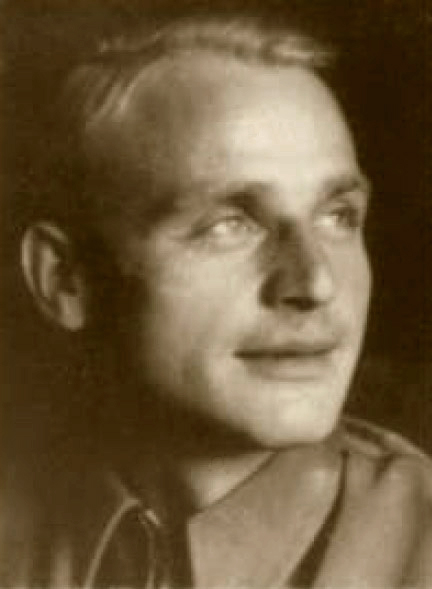Today is the 109th anniversary of the birth of Zygmunt Jan Rumel, poet and soldier in the Peasant Battalions, who was brutally murdered by Ukrainian nationalists in Volhynia.
Zygmunt Rumel was born on 22 February 1915 in Petrograd, into the family of Janina and Władysław, an officer in the Polish Army and a participant in the Polish-Bolshevik War. He grew up in Volhynia. After graduating from the Krzemieniec Lyceum, he began studying Polish philology at Warsaw University. At the same time, he was active in the scouting movement, the Volhynian Union of Rural Youth, and the Folk University in Różyno. He published articles in the monthly magazine Path of Labour, where he addressed historical and social issues and condemned anti-Semitism, advocating the concept of Poland as a multinational state.
In 1938, he began his military training at the Volhynian Artillery Reserve Cadet School in Włodzimierz Wołyński. In July 1939, he served his training in the 23rd Light Artillery Regiment in Będzin, with which he defended his homeland during the September campaign. During the occupation, he took part in the conspiracy, first as a ZWZ courier between Volhynia and Warsaw, working in the underground printing press of the Peasant Battalions Headquarters, and then as commander of the 8th PB District in Volhynia.
In the summer of 1943, he was ordered to establish contacts with the command of the Ukrainian Insurgent Army, whose aim was to stop attacks on Poles. On 10 July 1943, together with Krzysztof Markiewicz a.k.a. “Czort” – a representative of the Volhynian District of the AK and coachman Witold Dobrowolski, he met with the local command of the Security Service of the Organisation of Ukrainian Nationalists. Unfortunately, the Ukrainians murdered the Polish emissaries in a bestial manner, and Rumel himself was to be torn apart by horses. A day later, the Ukrainian Insurgent Army launched the so-called Bloody Sunday, during which Ukrainians guided by the slogan “Death to the Lachs” attacked 99 Polish villages, mainly in the Wlodzimierz and Horochów districts.
Privately, Zygmunt Rumel was a poet, author of a poem referring to the January Uprising, “The Year 1863”, and the poem “Two Mothers”, in which he referred with respect to both Poland and Ukraine. His wife Anna, under the pseudonym “Teresa”, fought in the Warsaw Uprising as a liaison officer in the Peasant Battalions.





